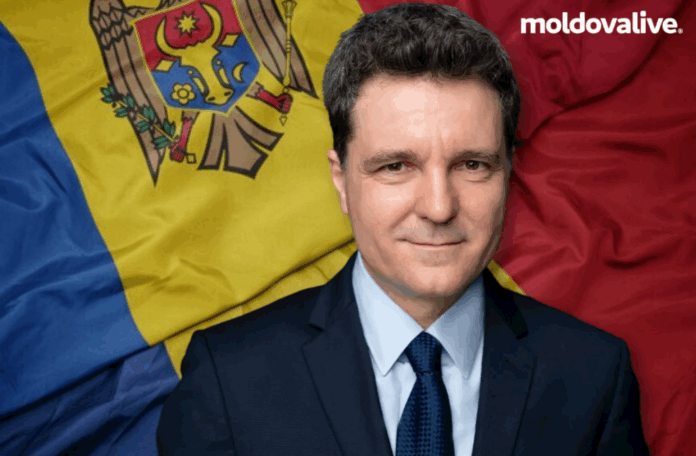Romania’s Parliament adopted the National Defense Strategy for 2025–2030 on November 26 during a joint session. President Nicusor Dan presented the strategic document in the plenary meeting of the Chamber of Deputies and the Senate, marking six months since he took office.
Lawmakers cast 314 votes in favor, 43 against, and 3 abstentions. After outlining the newly drafted strategy, President Nicusor Dan described it as “the result of a joint effort” and thanked the institutions, organizations, and citizens who submitted recommendations during public consultations.
The President stressed that the new vision puts the security of the citizen at the center rather than the security of an abstract notion of the state. “We are not defending an abstraction — the Romanian state. We are defending the Romanian citizen living on this territory,” he said, emphasizing the need to strengthen “the relationship between the citizen and the Romanian state” and to rebuild trust in public institutions.
The Strategy’s main concept, “solidary independence,” rests on two principles: the state’s ability to act consistently with society’s identity and interests, and its commitment to international obligations. The President explained that Romania must assert abroad “the interest that reflects this identity,” while maintaining solidarity with its partners.
The Strategy is organized into four chapters. The first analyzes the geopolitical context, highlighting the erosion of the rules-based international order, the ongoing “three-and-a-half-year war” in the region, multiple regional conflicts, and the declining effectiveness of international organizations in resolving crises.
The President also addressed rapid technological developments, including the rise of artificial intelligence, which widens the gap between states depending on their capacity to adapt.
Main threats: the war next door and Russia’s hybrid warfare
Nicusor Dan warned that “manipulation and disinformation campaigns,” attacks on critical infrastructure, and transnational threats — from organized crime to terrorism — are intensifying, further aggravated by the effects of climate change.
In the chapter on “threats, risks, vulnerabilities, and opportunities,” the Strategy identifies “the war next door” and “the hybrid warfare that Russia is clearly waging against Romania and many European countries” as Romania’s main dangers. The President pointed to “cyberattacks,” “coordinated disinformation campaigns,” and pressures on democracy and the rule of law.
Externally, the Strategy flags instability risks affecting “the eastern region — Moldova and Ukraine; the southern region — the Western Balkans; and the South Caucasus,” as well as insecurity in the Middle East. Domestically, the President highlighted “the reduced capacity of the public administration,” “corruption,” large-scale tax evasion, problems in education, demographic decline, and fragmented technology policies.
Opportunities: U.S. partnership, EU and NATO membership, and Romania’s strategic position
The President outlined key opportunities, including membership in NATO and the EU, and the Strategic Partnership with the United States. He praised the Government for submitting Romania’s application for the SAFE Program and referenced NATO’s “Sentinel of the East” initiative.
He noted that global increases in defense production create an opportunity for Romania to strengthen its own defense industry, where it already holds competitive advantages.
The President also highlighted Romania’s geographic position, the Port of Constanta, the Danube, and the EU’s Black Sea strategy. He described the technological sector and the Romanian diaspora as valuable assets, stating that Romanians abroad “have proven to be competitive in a market far more competitive than ours.”
The final chapter outlines directions for action. In defense, the Strategy aims to strengthen capabilities and deepen cooperation with the United States, NATO, the EU, and regional partners. In external relations, Romania will continue promoting its strategic partnerships and increasing its role within multilateral organizations. The President reaffirmed support for Moldova, Ukraine, the Western Balkans, and EU enlargement, calling it “a condition of our future stability.”
Domestically, the Strategy prioritizes combating corruption. It assigns intelligence services a role in collecting data on corruption while maintaining a clear boundary between intelligence work and the justice system. The document calls for prioritizing high-level corruption cases and fixing legislative and administrative barriers that delay trials.
The President underscored the need for “budgetary stability and predictability,” revitalizing the defense industry, supporting Romanian companies, and attracting foreign investment. He stressed the importance of economic diplomacy, acknowledging its previous shortcomings. He voiced optimism about Romania joining the OECD “next summer” and thanked Parliament for swiftly adopting needed legislation.
He also described energy as a crucial sector, given “the connection between productivity and energy prices.”
In closing, Nicusor Dan returned to the central role of citizens. “It is very important […] to involve citizens and civil society, and for that, first of all, we must regain the citizens’ trust.” He added that an implementation plan with deadlines and indicators will follow, while cautioning that Romania “has no shortage of strategies or implementation plans — what matters is how we carry them out.” He assured lawmakers: “You have in me a partner.”
President Nicusor Dan presented the Strategy exactly six months after taking office, in the joint plenary session of Parliament, following earlier discussions within the Supreme Council of National Defense. As the first national security strategy subjected to public debate — with adjustments and expanded conceptual explanations — the document “expresses the President’s vision of a modern and secure Romania, enjoying peace and its unique advantages, a state built around its citizens, in service of their fundamental rights and freedoms, with transparent and ethical institutions dedicated entirely to the public good.”


